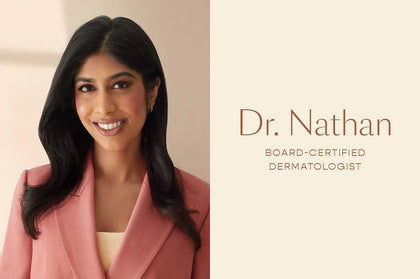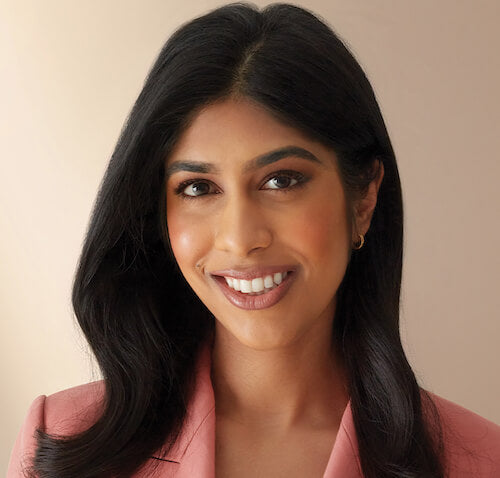Dr. Neera Nathan, MD, MSHS, is a board-certified dermatologist and VEGAMOUR expert. Every month, the Harvard-trained doctor shares the science behind and potential solutions to topics such as hair loss, hair growth, scalp care and graying. Read all of Dr. Nathan's articles here.
Your hair is an extension of your skin. As the largest and only external organ, the skin and hair act as a barrier between the outside world and the inside of your body. The skin and hair depend on signals and feedback from internal organs, including the brain and gut, to function. This connection between the hair, mind and body means that the appearance and health of your skin and hair can be a reflection of your physical and mental well-being. Genetics does not account for all of these changes. If you are looking to improve your overall health from the inside out, here are some simple ways to modify your lifestyle to achieve your goals and help your hair flourish naturally.
Reduce Stress and Focus on Well-Being
Various alternative techniques that focus on the mind-body connection have been studied in hair loss. Aromatherapy, massage therapy and acupuncture all might have benefits for hair health. Even just several minutes of scalp massage per day has been shown to improve hair strand thickness and boost mood.
Additionally, the importance of quality sleep for mental and physicial health has long been established. A recent study showed that staying up late at night and poor sleep quality was associated with more severe androgenetic alopecia, a very common type of hair loss caused by age and hormone imbalances.
Gain Micronutrients You Might Not Realize You’re Missing
There are multiple vitamins that are unsung heroes of hair growth and scalp health. Iron is a key nutrient in hair health. Iron deficiency has been linked to telogen effluvium, a type of hair loss that causes diffuse shedding, as well as androgenetic alopecia. Low iron stores may also play a role in hair graying.
Zinc is also critical for hair growth. Studies have linked zinc deficiency to alopecia areata, a form of autoimmune hair loss, as well as telogen effluvium and androgenetic alopecia.
Vitamin D may be important to maintaining scalp health; it appears to keep the scalp hydrated, which is important for normal hair growth. Not surprisingly, studies show that heavily restrictive diets (“crash diets”) can lead to striking hair loss. This underscores the importance of eating a varied diet, followed by supplementation when needed, to achieve adequate levels of vitamins and nutrients.
Add Science-Backed Products to Your Routine
There is growing evidence that certain products might help boost growth, especially when combined with a healthy lifestyle. Topical minoxidil is an FDA-approved, over-the-counter treatment for hair loss. The mechanism of action is not clear, but it appears to increase hair density and thickness for people experiencing androgenetic alopecia.
From Dr. Nathan: 2 Major Ways Stress Affects Hair, According to Dr. Nathan
Natural products may also be effective for hair loss. Topical caffeine has been shown to counteract stress pathways which in turn may restore lost hair. Topical curcumin has shown promise to reduce inflammation and potentially increase hair growth. Melatonin, which is a hormone produced by the body that helps regular sleep, may also help treat hair loss when taken orally or applied topically. Other natural extracts, like rosemary oil and capsaicin, may also assist with hair loss.
See a Doctor When Needed
Be sure to visit a doctor for any sudden or patchy hair loss or for an itchy or painful scalp. Board-certified dermatologists are experts in hair, skin and nails. A dermatologist may offer you prescription treatments in addition to in-office procedures that can complement a healthy lifestyle to help reverse hair loss and improve scalp health. To find a board-certified dermatologist, visit the American Academy of Dermatology Association.
More From Dr. Nathan
- What Your Hair Can Tell You About Your Overall Health
- “Prejuvenation”: Why Now Is the Best Time to Preserve Your Hair Health



















